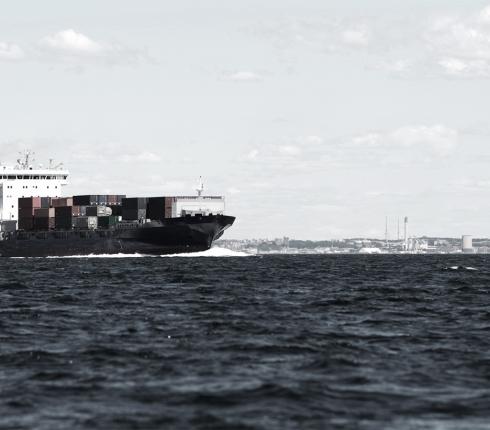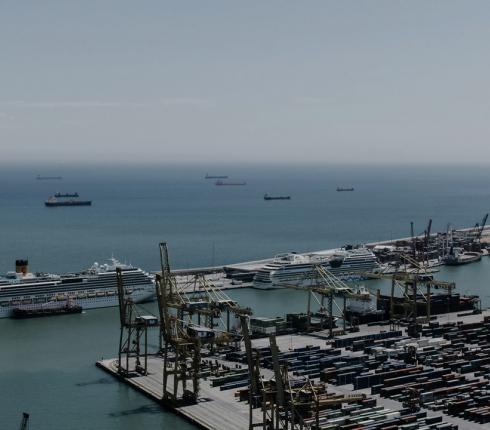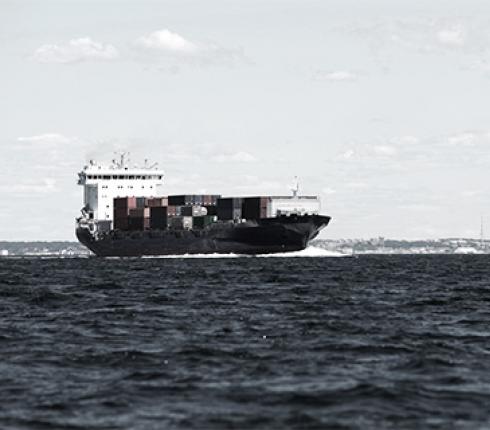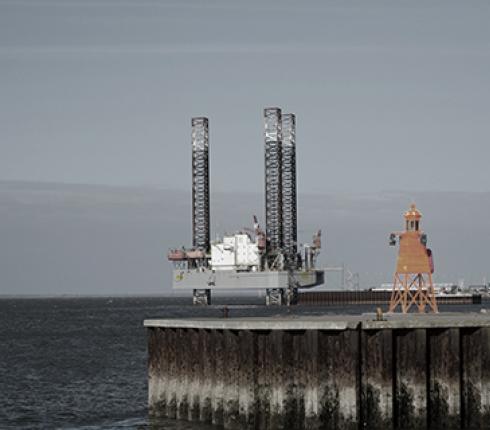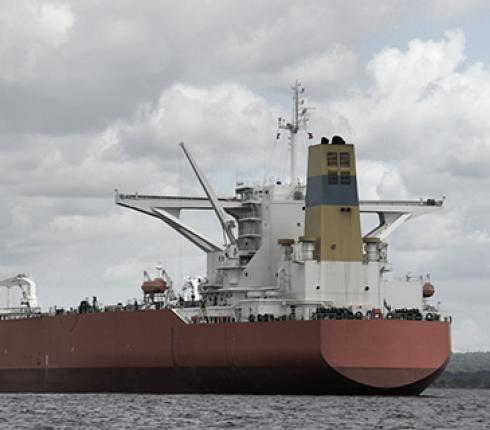Direct actions prevail over jurisdiction clauses
Two recent decisions by the Danish Supreme Court and the Maritime and Commercial Court significantly increase the likelihood of direct actions being brought against liability insurance companies in the jurisdiction of the injured party and/or in the jurisdiction where the policyholder caused damage – regardless of any jurisdiction clause in the insurance policy.
In the “Assens Port”-case, the Supreme Court ruled that a jurisdiction clause in a marine insurance policy was not binding on the injured party, who had commenced legal proceedings against a foreign insurer in Denmark. The same applied in the “British American Tobacco”-case, where a jurisdiction clause in an extended professional liability insurance policy was found not prevent an injured party from bringing a direct action in Denmark against a foreign insurer.
The judgments emphasise the potential risk for liability insurance companies of being met with direct actions in the jurisdiction of the injured party and/or in the jurisdiction where their policyholders cause damage. However, the injured party will only be entitled to bring a direct action against a liability insurance company, if the applicable national law provides a basis for such actions. The legal position on this point varies between the EU Member States. Legal advice should be sought from local expert lawyers on this point for any disputes where a direct action might be brought against the insurer.
The "Assens' Port"-case
In 2007, the tugboat “Sea Endeavour I” caused damage to a dockyard at the port of Assens. The tugboat was chartered by Skåne Entreprenad Service AB (“SES”), who were insured with the English insurance company, Navigators Management (UK) Limited (“Navigators”). After the accident, SES were declared insolvent, and in January 2008, the port of Assens arrested the tugboat as security for their claim for damage to the dockyard. However, the value of the tugboat was insufficient to cover the claim. The port of Assens therefore commenced legal proceedings against Navigators in the Danish Maritime and Commercial Court. The port of Assens relied on Section 95 (2) of the Danish Insurance Contracts Act, which provides an injured party with a right to bring a direct action against the defendant’s insurer. This also applies where the injured party's claim lies against an insured party who is declared insolvent after the injured party’s claim arises.
Navigators claimed that the Maritime and Commercial Court did not have jurisdiction to consider the case, because the port of Assens was bound by the jurisdiction clause in the marine insurance policy between Navigators and SES, which provided as follows:
“This insurance shall be governed by and construed in accordance with the law of England and Wales and each party agrees to submit to the exclusive jurisdiction of the courts of England and Wales.”
The Maritime and Commercial Court considered the issue of jurisdiction as a separate, preliminary matter.
The Maritime and Commercial Court found that the jurisdiction clause prevailed
In the preliminary proceedings regarding jurisdiction, the port of Assens claimed that the proper venue for the dispute was Denmark pursuant to Article 9 (1) (b) and (10) cf. Article 11 (2) of the EU Judgment Regulation in force at the time. Pursuant to these provisions, under the Judgment Regulation proceedings may be commenced directly against insurers in the courts of the place where the injury occurred or where the injured party was domiciled, if the national law of that place permits such direct action to be brought against the insurer.
By contrast, Navigators held that for marins insurance, the starting point under Articles 9 and 10, cf. Article 11 (2) could be departed from by agreement, cf. Article 13 (5), cf. Article 14 (2) (a) of the EU Judgment Regulation.
The Maritime and Commercial Court followed the arguments put forward by Navigators and found that the port of Assens was bound by the jurisdiction clause in the insurance contract.
Referral to the European Court of Justice
The port of Assens appealed the decision to the Supreme Court. During the appeal, the Supreme Court referred to the European Court of Justice a question as to whether it followed from Article 13 (5) of the Judgment Regulation, cf. Article 14 (2)(a) that a jurisdiction clause was binding on an injured party, who was entitled to bring a direct action against the insurer under national law.
In its judgment of 13 July 2017 (Case C-368/16), the ECJ reiterated that the exceptions to the provisions of the Judgment Regulation in matters of insurance should be interpreted strictly according to their wording. In addition, the ECJ emphasized that the purpose of the relevant articles of the Judgment Regulation in insurance matters was to protect the party who was considered to be financially weakest and legally least experienced. In previous ECJ-cases in this area, judgments have turned on whether the ECJ considered an injured party to be a weak party in this sense. An example hereof is Case C-347/08 (Vorarlberger Gebietskrankenkasse), although the judgment in that case did not consider whether a jurisdiction clause was binding on the injured party.
Following these principles, the ECJ ruled that the objective of protecting such weaker parties could be compromised if the binding effect of jurisdiction clauses was applied too broadly with respect to injured parties. The ECJ therefore concluded that:
”[…] a victim entitled to bring a direct action against the insurer of the party which caused the harm which he has suffered is not bound by an agreement on jurisdiction concluded between the insurer and that party.”
The judgment does not consider specifically whether the injured party (i.e. the port of Assens) was considered a weak party, or whether that element was relevant for the ECJ’s findings. The judgment therefore appears to be generally applicable, regardless of the circumstances of the injured party.
The parties’ arguments before the Supreme Court
Following the ECJ’s judgment, the port of Assens added the following arguments to their sub-missions in the case before the Supreme Court:
- The judgment of the ECJ made it clear that the port of Assens was not bound by the agreement on jurisdiction concluded between SES and Navi-gators, and further that it was not a prerequisite for an injured party to rely on the ECJ’s judgment that the party was considered a financially or legally weak party.
- Danish law applied to the port of Assens’ direct claim against Navigators. Therefore, the requirement in Article 11 (2) of the Judgment Regulation had been fulfilled, as the Insurance Contracts Act provided an injured party with the right to bring an action directly against a liability insurance company in the event of the insured policyholder being declared insolvent.
Navigators in turn added the following arguments to their submissions:
- The decision of the ECJ did not mean that the injured party was always entitled to bring an action against the insurer in the injured party’s own jurisdiction irrespective of any jurisdiction agreement between the insurance company and the policyholder.
- According to Article 13, cf. Article 14, of the Judgment Regulation, a jurisdiction agreement was binding on the injured party. The exception to this rule only applied where the injured party was considered a financially and legally weak party. This condition did not apply in this specific case where the injured party was a self-governing municipal port operated as a professional company, who had chosen to manage its commercial risk through self-insurance.
- Section 95 of the Insurance Contracts Act did not apply to the relationship between Navigators and the port of Assens because English law, and not Danish law, applied to the port of Assens’ direct claim due to the principles on choice of law applicable to the matter.
The Supreme Court’s judgment
The Supreme Court found that there was no basis for arguing that the ECJ’s judgment only applied to injured parties considered to be financially or legally weak. The port of Assens was therefore not bound by the jurisdiction clause.
Accordingly, the (only) condition that had to be met for the port of Assens to bring an action against Navigators in Denmark was that the national law applicable to the case provided a legal basis for the port of Assens to bring a direct claim against Navigators. In determining the national law applicable to the claim, the Supreme Court applied the “individualizing method” developed in Danish case law.
The Supreme Court found that the claim had its closest connection to Denmark, inter alia because the damage occurred in Denmark and because the port of Assens was domiciled in Denmark. As there was a legal basis for bringing a direct claim against Navigators under section 95 of the Insurance Contracts Act, the Danish courts had jurisdiction to consider the matter.
The “British-American Tobacco”-case
In this case, a shipment of cigarettes was transported by road from Pecs in Hungary to Vallensbæk in Denmark, but was stolen en route during a robbery that took place in Denmark. The consignee was House of Prince A/S ("House of Prince") who was part of the British-American Tobacco Group (the “BAT Group”). The carrier was the Dutch company Kazemier Transport B.V. ("Kazemier"). Kazemier was declared insolvent before the claim could be resolved. The company had taken out freight liability insurance with the Dutch insurance company HDI-Gerling Verzekeringen N.V. ("HDI-Gerling").
Four companies in the BAT Group filed a direct action against HDI-Gerling under section 95 (2) of the Insurance Contracts Act in the Danish Maritime and Commercial Court (case no. H-93-16). HDI-Gerling argued that the claim should be struck out because the insurance agreement between HDI-Gerling and Kazemier contained a jurisdiction clause providing that disputes under the agreement should be decided by the competent court at the place where the policy had been issued – which in this case was Rotterdam in the Netherlands, and not Denmark.
The Maritime and Commercial Court considered the issue of jurisdiction as a separate, preliminary matter.
Arguments on jurisdiction
The claimants argued that the Danish courts had jurisdiction to consider the claim under the then current EU Judgment Regulation, because the damage occurred in Denmark, cf. Article 13 (2) (previously Article 11), cf. Article 12 (previously Article 10). Alternatively, the Danish courts had jurisdiction because the first claimant, House of Prince, was domiciled in Denmark, cf. Article 13 (2) (previously Article 11), cf. Article 11 (1) (b) (previously Article 10) of the Judgment Regulation. The claimants further argued that Danish law applied to the claim against HDI-Gerling because the damage occurred in Denmark; because delivery of the goods was to take place in Denmark; and because the consignee, House of Prince, was domiciled in Denmark. Also, the Insurance Contracts Act provided the injured party with the right to bring a claim directly against the insurer in cases where the policyholder had been declared insolvent.
HDI-Gerling argued that the claimants could not rely on Article 13 (2), since an agreement on jurisdiction pursuant to Article 15 (3) of the Jurisdiction Regulation prevailed over the provisions of Article 13 (2). Alternatively, HDI-Gerling claimed that Danish law did not apply to the claim against HDI-Gerling. Instead, Dutch law should apply as HDI-Gerling and Kazemier were domiciled in the Netherlands and because the insurance policy between HDI-Gerling and Kazemier contained a Dutch choice of law clause.
Finally, HDI-Gerling claimed that even if Danish law applied to the claim, section 95 (2) of the Insurance Contracts Act did not allow the claimants to bring a direct action against HDI-Gerling. The claimants’ claim was based on subrogation; therefore, the same conditions applied to the claimants’ position as to Kazemier's position vis-à-vis HDI-Gerling. The claimants were therefore bound by the jurisdiction clause in the insurance policy.
Rejecting this argument, the claimants said that they were not bound by a procedural jurisdiction agreement between third parties, and referred to the principle of relativity of contracts as well as the “Assens Port”-case.
The judgment of the Maritime and Commercial Court
The Maritime and Commercial Court found that the case had its closest connection to Denmark and that Danish law therefore applied to the claim. Further, the Court found that section 95 (2) of the Insurance Contracts Act provided the claimants with the right to bring a direct actoun against HDI-Gerling.
Therefore, the requirement in Article 13 (2) of the Jurisdiction Regulation had been fulfilled. As the jurisdiction clause in the insurance policy between HDI-Gerling and Kazemier could not be enforced against the claimants as third parties, the Court followed the claimants’ arguments and found that it had jurisdiction to consider the matter.
NJORD Law Firm's comments
These two recent judgments emphasise the potential risk for liability insurance companies of being met with direct actions in the jurisdiction of the injured party and/or in the jurisdiction where their policyholders cause damage. This applies regardless of whether the injured party can be described as a weak party, as confirmed by the Danish Supreme Court judgment in the “Assens Port”-case.
For a direct action to be brought against the insurers, the national law applicable to the claim must provide the injured party with the right to bring such a claim, cfr. Article 13 (2) (previously Article 11). Following the findings of the Supreme Court in the “Assens Port”-case, the Danish courts will use the “individualizing method” when determining the law applicable to such claims. Therefore, the courts will apply the law of the country with which the case has its closest connection.
It is important to note that the rules on direct actions differ significantly between the EU Member States. Establishing which law applies to the matter is therefore essential in cases involving potential direct actions against insurers. For instance, Dutch law does not allow for direct actions to be brought against a liability insurance company when the insurance is not statutory. The same applies in Germany. In countries such as Denmark, the Insurance Contracts Act provides conditional access to direct actions in relation to voluntary liability insurance, including where the insured party has been declared insolvent. Similar principles apply in countries such as Italy.
In the “Assens’ Port”-case, the ECJ did not consider specifically whether the port of Assens could apply Article 11 (2) of the former Judgment Regulation – it only considered the validity of the jurisdiction agreement in relation to the port of Assens. Therefore, liability insurance companies facing direct actions may in future cases argue that an injured party cannot apply the rules in Article 13 (2) (previously Article 11(2)) of the Jurisdiction Regulation, because the injured party is not a weak party in the ECJ’s terminology. However, such an argument will not succeed in cases before the Danish courts following the Supreme Court’s findings in the “Assens Port”-case.





